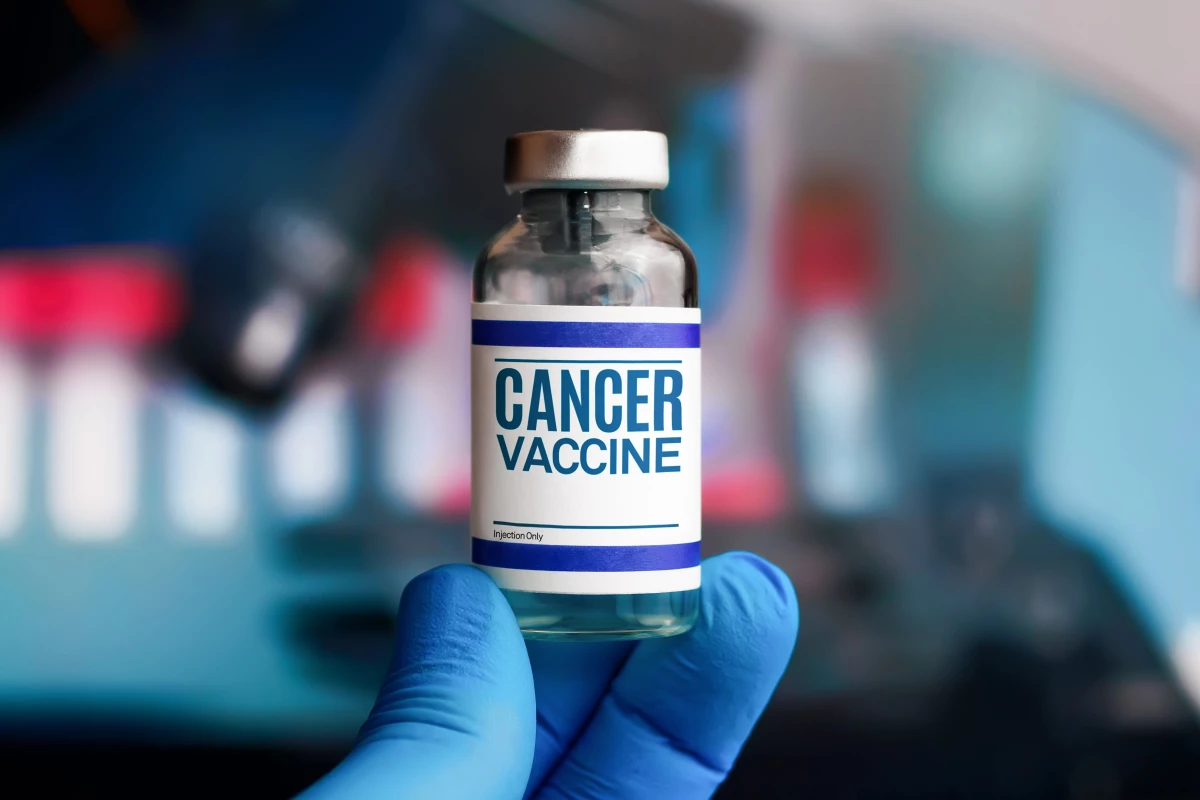Universal Cancer Vaccine Trains Immune System to Defeat Any Tumor, Universal cancer vaccine has emerged as a beacon of hope in oncology, offering the potential to revolutionize cancer treatment. Instead of customizing vaccines to each cancer type, researchers at the University of Florida (UF) have engineered an mRNA-based jab that primes the immune system to recognize and attack any tumor—by tricking cancer cells into exposing a “flag,” PD‑L1, that makes them visible to immune cells.
A New Era for mRNA in Cancer Treatment
In the post–COVID‑19 era, mRNA vaccine technology has accelerated breakthroughs in cancer research. UF scientists built upon glioblastoma trials to create a “general-purpose” mRNA vaccine, delivered via lipid nanoparticles, similar to COVID‑19 vaccines, but retooled to stimulate a broad immune attack on tumors. Evotek
Rather than targeting tumor-specific proteins, this vaccine triggers the body to induce PD‑L1 expression in cancer cells, effectively “unmasking” them for T‑cell recognition. It’s a radical departure from precision vaccines and chemotherapy, offering the promise of off‑the‑shelf immunotherapy. McKnight Brain Institute
Promising Pre‑Clinical Outcomes
In animal studies, the vaccine cleared melanoma tumors resistant to standard treatments. It eradicated tumor types including brain, skin, and bone cancers—and without needing additional therapies. ResearchGate
Research confirmed that combining the vaccine with immune checkpoint inhibitors delivers a “one‑two punch,” dramatically enhancing the immune system’s cancer‑killing performance.
From Lab to Human Trials
UF researchers are now taking this strategy into early‑phase human trials, signaling confidence in safety and translational potential. The aim is to move from pre‑clinical proof‑of‑concept to transformative clinical validation, reshaping the cancer‑immunotherapy landscape.
The Bigger Picture: Industry Momentum
This UF effort reflects a wider mRNA revolution in oncology. The UK, for instance, aims to treat 10,000 patients with personalized mRNA cancer vaccines by 2030, pivoting on pandemic‑era infrastructure and partnerships with BioNTech and Moderna.
Personalized neoantigen vaccines are already showing efficacy in early trials for renal‑cell carcinoma and others—with complete remission reported in small cohorts. This adds weight to the promise of universal mRNA vaccines.
Challenges, Considerations & The Road Ahead
Despite the excitement, hurdles remain. Most current results are in mice—translation to humans is uncertain, as experts caution. Moreover, scaling production, regulatory approval, safety, and long-term efficacy must be rigorously addressed.
Yet, if human trial results hold, this universal mRNA vaccine could reduce reliance on chemotherapy, surgery, and radiation—setting the stage for a scalable, equitable cancer therapy available “off the shelf.”
Conclusion
The universal cancer vaccine being developed at UF marks a milestone in immunotherapy. By broadly alerting T‑cells through PD‑L1 induction and leveraging the success of mRNA technology, it signals a fundamental shift—from tailored yet complex treatments to accessible, immune‑driven interventions.
With ongoing human trials and industry backing, we are closer than ever to realizing a future where cancer is not just treatable—but preventable.
Subscribe to trusted news sites like USnewsSphere.com for continuous updates.





